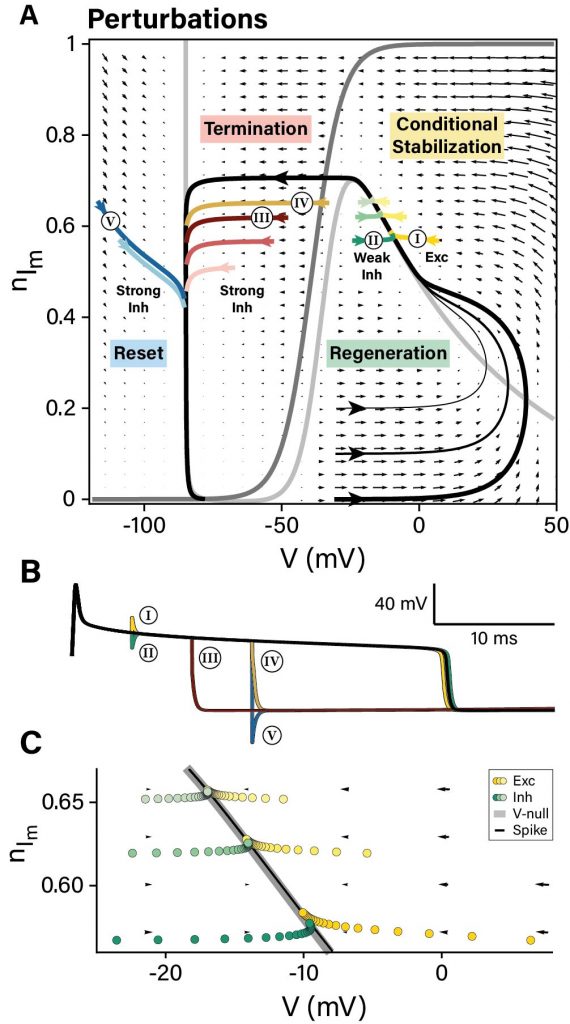In layer 5 cortical pyramidal neurons, the principal projection neurons of the cortex, dendritic Ca2+ spikes play a key role in signal processing. Employing single-cell simulations, Dudai et al. reproduced the complexity of the Ca2+ spike in a reduced dynamical model and identified the main factors regulating its duration. The authors found that while the overall shape of the Ca2+ spike is stable, its duration is sensitive to synaptic perturbations and cholinergic modulation. The authors also showed that, counterintuitively, timed excitation may shorten the spike, while inhibition may extend it. Through a dynamical systems analysis, this work sheds light on the mechanisms controlling the Ca2+ spike, a fundamental signal that amplifies excitatory input, facilitates somatic action potentials, and promotes synaptic plasticity in cortical neurons.



